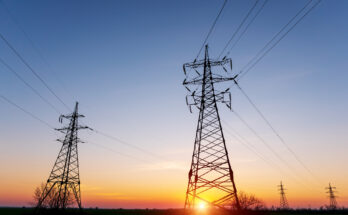According to a new survey, more than half of Europe’s power meters are now smart meters.
Thanks to significant expenditures in grid modernization and digitization by utilities in the region, the adoption of smart power meters has crossed the 50% level. About 150 million smart power meters would be installed by 2020, with a penetration rate of 49 percent in the bloc.
However, until 2026, the installed base is predicted to grow at a rate of 7.2% each year. According to Berg Insights, by 2026, Europe will have 227 million smart power meters.
The majority of Western and Northern European nations have finished or are nearing completion of smart meter implementation. According to Berg Insight, this suggests that the region’s smart meters will be part of second-Generation installations.
“In reality, replacements of first-Generation smart metering equipment are estimated to account for over a third of all device shipments through 2026,” according to a senior analyst.
According to the report, the Central Eastern and Southern Europe areas, which have lagged behind Western and Northern Europe in terms of deployment in recent years, will have the ten fastest-growing markets in terms of first-Generation installations.
Utilities are likely to adopt wireless communications technology for smart meter data telemetry in greater numbers. The percentage of smart electricity meter projects that use the wireless protocol is predicted to rise from 25% in 2020 to 57 percent in 2026. Advances in wireless communications solutions, such as 3GPP-based LPWA services, have contributed to this.
In the European metering sector, NB-IoT and LTE-M communications have now achieved commercial success and are being evaluated for an increasing number of projects.
According to the report, the smart gas meter industry is likely to grow, with installations rising from 39 million units in 2020 to slightly over 70 million in 2026.
At a time when energy costs are continuing to climb, smart meters are a critical tool for European consumers and utilities. Advanced metering data may be utilized to give consumers with advice on how to better optimize their energy consumption and lower their bills. Samsung introduced a new smart meter-enabled tool in late October with this goal in mind. Samsung SmartThings Energy is a free solution that allows customers of any UK retailer to combine their smart meter data with the service to regulate the energy use of their household appliances from anywhere.
The report’s release coincides with research company Guidehouse Insights estimate that global utilities will increase spending on smart meter analytics in order to maximize returns on advanced meter expenditures. Between 2021 and 2030, utilities will invest three times more in smart meter analytics as they aim to improve the management of distributed energy resources, customer services, and embed intelligence at the grid edge.





